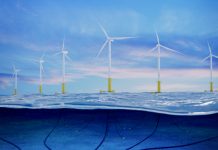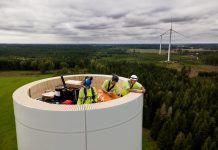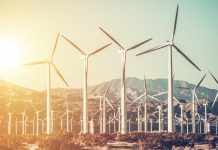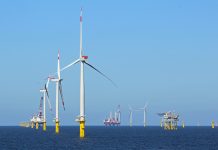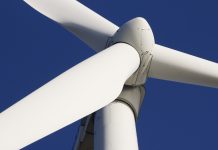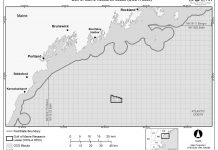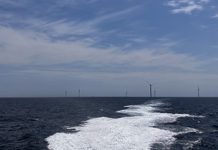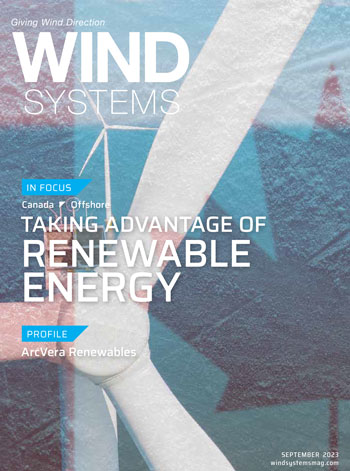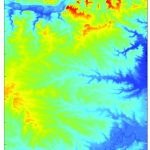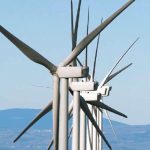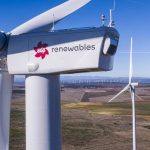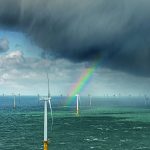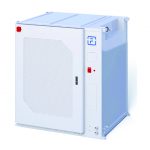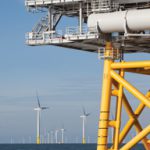As part of the Biden-Harris administration’s goal of deploying 30 GW of offshore wind energy capacity by 2030, the Bureau of Ocean Energy Management (BOEM) recently announced three final wind energy areas (WEAs) offshore Delaware, Maryland, and Virginia, which were developed following extensive engagement and feedback from states, Tribes, local residents, ocean users, federal government partners, and other members of the public. If fully developed, the final WEAs could support between 4 and 8 GW of energy production.
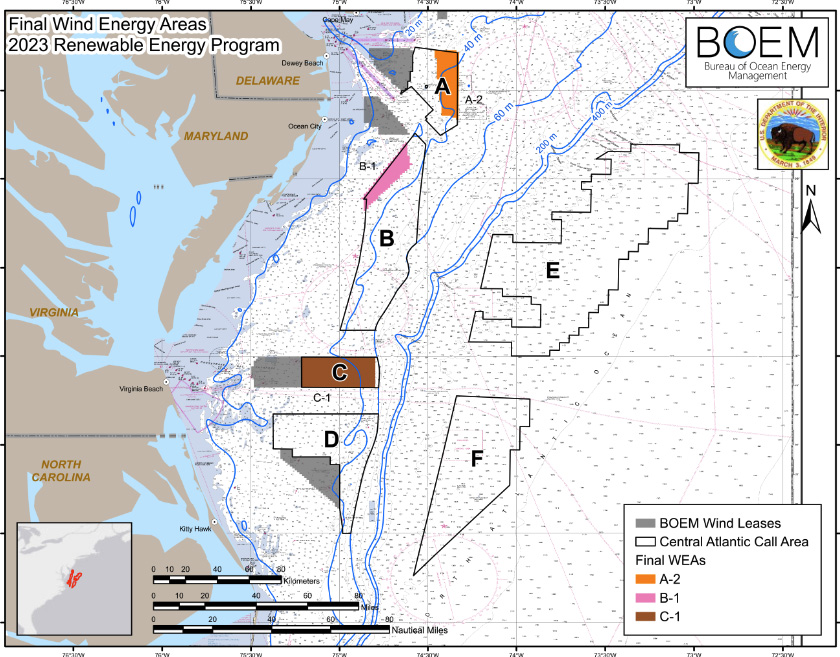
The three WEAs total about 356,550 acres. The first WEA (A-2) is 101,767 acres and 26 nautical miles from Delaware Bay. The second WEA (B-1) is 78,285 acres and about 23.5 nautical miles offshore Ocean City, Maryland. The third WEA (C-1) is 176,506 acres and about 35 nautical miles from the mouth of the Chesapeake Bay, offshore Virginia. A map of the final WEAs can be found on BOEM’s website.
“BOEM values a robust and transparent offshore wind planning process, which requires early and frequent engagement with Tribal governments, the Department of Defense, NASA, other government agencies, and ocean users,” said BOEM Director Liz Klein. “We will continue to work closely with them, and all interested stakeholders, as we move forward with our environmental review.”
BOEM partnered with the National Oceanic and Atmospheric Administration’s National Centers for Coastal Ocean Science (NCCOS) to develop a comprehensive, ecosystem-based ocean planning model that assisted in the selection of the final WEAs.
This model leveraged best available data on natural resources, ocean industries such as fisheries and energy production, and areas of national security activities to identify areas with high wind-energy resource potential while reducing potential impacts to other ocean users and sensitive environmental resources.
This comprehensive approach not only provided valuable insights about the seascape and uses of the ocean region, but also facilitated greater transparency and positive coordination with government partners and ocean stakeholders through direct engagement and incorporation of their feedback into the NCCOS model.
The final WEAs are in comparatively shallow water. BOEM may identify additional WEAs in deepwater areas offshore the U.S. Central Atlantic coast for future leasing once further study of those areas has been done.
More info www.boem.gov/renewable-energy/state-activities/central-atlantic



